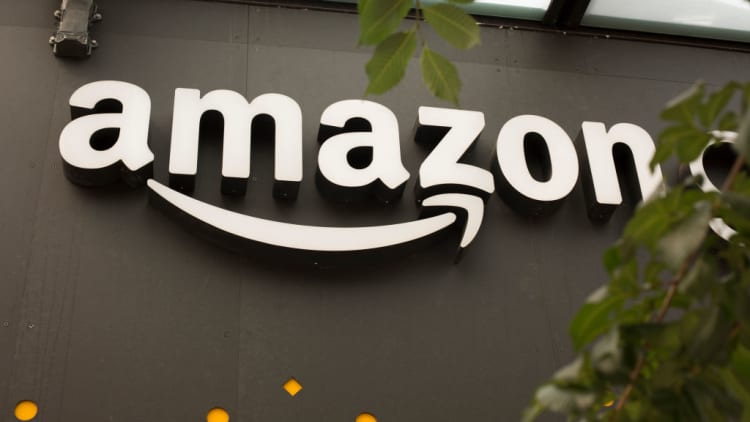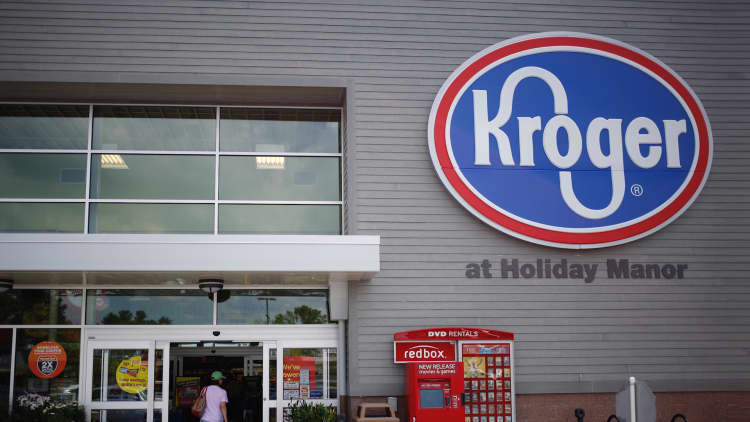Kroger has made its latest bold move to win over U.S. grocery shoppers.
The grocer is, for the first time, looking to an outside advertising agency to help oversee its marketing efforts. The move is the latest in a string of actions the grocer has taken to make sure shoppers know it is more than a local shop to pick up essentials. Kroger, founded at 66 East Pearl Street in Cincinnati, Ohio in 1883, has in the past two years eyed global and technological expansion.
It bought meal kit company Home Chef and a stake in British online supermarket Ocado. It launched grocery delivery service Kroger Ship and struck a partnership with driverless car company Nuro. It inked a partnership with Walgreens in the U.S. and Alibaba in China.

These are big moves for the grocer that first made its splash by being first to offer in-house bakeries and meat departments. They are also a different than the one previously forged by Kroger.
For years, Kroger spent money on growth, but the money was predominantly put toward buying competitors, not transforming its business. Previous deals include Harris Teeter and Fred Meyer. Scale gave it the power to navigate the infamously thin-margin grocery industry.
But things changed over the past five years, and scale is no longer the singular defense. Shoppers increasingly like their food fresh, organic and natural. Amazon's infiltration into the industry has forced all grocers to expedite their technology investments. Walmart has kept grocery a focus, even as its fortified its larger discount store business.
Seventy percent of shoppers will be buying some portion of their groceries online within five to seven years, according to Nielsen. That equates to $100 billion in total sales.
Changes have rippled throughout the industry. Walmart racing is reoutfitting its stores to support grocery delivery and racing to bring it to 1,600 locations by the end of fiscal 2020. Target, which has struggled with its grocery business, paid $550 million to buy same-day delivery service Shipt in 2017.
So far, some of Kroger's investments appear to have born results: shares of Kroger are up nearly 5 percent this year, giving it a market capitalization of $23 billion. Its digital sales grew more than 60 percent the third quarter of 2018. But that growth came at a cost: its profit fell 20 percent.
Whether the sacrifice was worth it is yet to be seen. Regardless, the grocer looks far different than the original shop on Pearl Street.



